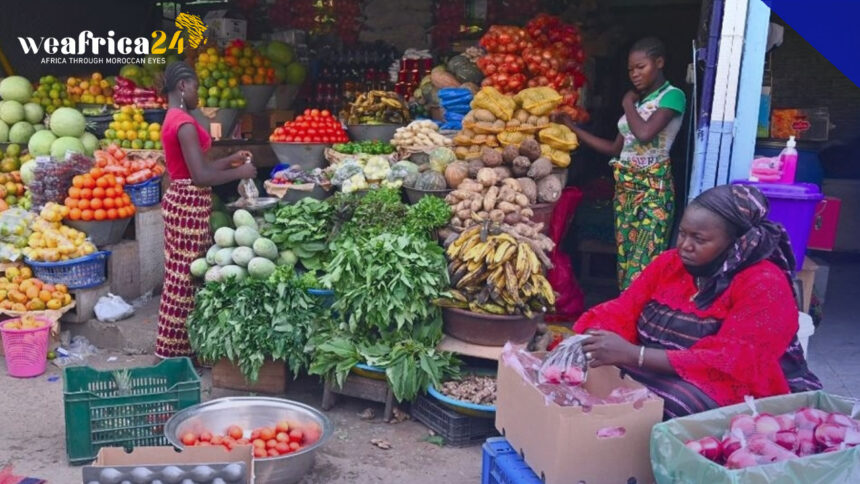Since January, the Ivorian Ministry of Commerce has imposed a six-month ban on the export of food products. With the dry season underway, authorities aim to prevent shortages in markets and ensure affordable prices for consumers. A report from the Siporex 2 market in the Yopougon Commune sheds light on the situation.
While the government has lifted the export ban on plantains, cassava, and yams, it remains in place for other food products, including vegetables.
Solange sells locally grown eggplants but finds the current period challenging. She notes that eggplants are expensive, cutting into her profit margins. “It’s not easy; eggplants are costly. Previously, a sack was priced at 5,000 CFA francs, but now it’s at 16,000!”
Despite this, market stalls are well-stocked with a variety of produce, including red peppers from Korhogo, okra, and numerous vegetables from inland regions. According to Mabaty Dosso, the president of the Siporex 2 market, the site can receive up to two tons of food products daily. She believes the export ban has been beneficial for ensuring an adequate supply of quality produce in local markets.
“The measure has ensured that markets are adequately supplied with both quantity and quality. We cannot allow everything to be exported as not all products are abundantly produced in Côte d’Ivoire. Otherwise, we would face shortages.”
Bernard Adou, the director of the Office for the Promotion of Food Product Marketing, asserts that the measure aims to protect local markets. “We have observed that food product prices have decreased by over 40%.”
Simultaneously, the Ministry of Commerce is cataloging entrepreneurs engaged in food product exports to better understand demand in the sub-region.







